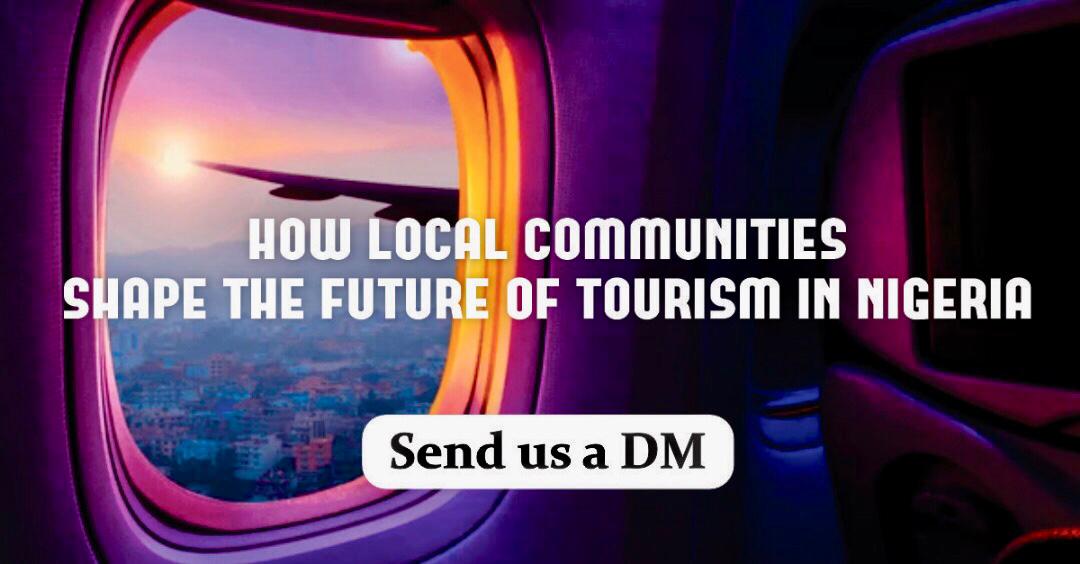When most people think about tourism in Nigeria, their minds often go straight to destinations like Olumo Rock, Obudu Mountain Resort, Erin Ijesha Waterfalls, or the bustling streets of Lagos and Abuja. While these are all incredible places worth visiting, what often goes unnoticed is the beating heart of tourism in Nigeria, the local communities that make these places come alive.
From the warm welcome of a local guide to the rich traditions shared during a cultural dance, local communities are not just passive backdrops to travel experiences. They are active participants, storytellers, custodians of culture, and innovators who are reshaping the way both Nigerians and international travellers experience the country.
In this post, we explore how local communities are not only preserving Nigeria’s cultural and natural heritage but also driving a new, more sustainable and inclusive form of tourism.
1. Authentic Cultural Experiences
There’s something magical about experiencing Nigeria through the eyes of its people. Whether you're participating in a traditional wedding ceremony in the Southeast, learning how to make Tuwo Shinkafa in the North, or being guided through ancient shrines in Osun, these immersive experiences are impossible to replicate without the involvement of locals.
Tourists today crave authenticity; they want to see how people live, what they eat, what they wear, and how they celebrate life. Local communities offer just that. These experiences not only deepen visitors’ appreciation for Nigeria’s diverse cultures but also ensure that tourism revenue flows directly into the communities that make it possible.
2. Economic Empowerment Through Tourism
For many rural and underdeveloped areas, tourism offers a powerful path to economic growth. Community-run guesthouses, craft markets, local tour services, and cultural shows are just a few ways locals are turning their heritage into income.
Take, for instance, the Awhum Monastery in Enugu State. What was once a secluded religious site has now become a tourist attraction, with local youths offering hiking tours, selling handmade souvenirs, and providing food and drinks to visitors. These micro-businesses might seem small on the surface, but collectively, they are transforming entire communities.
This shift from urban-centred tourism to community-based tourism means more equitable distribution of income and job creation, especially for women and youth who may otherwise be unemployed.
3. Preserving Traditions and Heritage
Tourism can sometimes be seen as a double-edged sword; while it brings exposure, it can also dilute traditions if not properly managed. But in Nigeria, we are seeing a growing trend of heritage protection through tourism.
Communities are recognizing the value of their unique stories, dances, languages, crafts, and festivals. Events like the Argungu Fishing Festival, Ofala Festival, and Calabar Carnival are not just entertainment; they are cultural preservation in action. And they attract thousands of tourists who contribute to local economies by encouraging pride in their heritage, and communities are ensuring that younger generations grow up valuing their roots. It’s tourism working as a tool for identity preservation.
4. Environmental Conservation Efforts
Many local communities in Nigeria are also becoming stewards of the environment due to the rise of eco-tourism. In places like the Afi Mountain Wildlife Sanctuary in Cross River State or the Yankari Game Reserve in Bauchi, locals are involved in guiding tourists, protecting endangered species, and running conservation education programs.
When tourists pay entrance fees or contribute to conservation programs, this money often supports both the environment and the local people who help protect it. Communities now see the direct value of preserving their forests, rivers, and wildlife, not just for the planet, but for their future prosperity.
5. Community Storytelling and Digital Influence
The internet has given voice to previously unheard storytellers, many of whom are young Nigerians in local communities using social media to showcase the beauty of their hometowns. From drone shots of remote villages to TikTok videos of traditional dances, these digital stories are putting Nigeria’s lesser-known destinations on the map.
Local influencers, travel bloggers, and content creators are now collaborating with tourism boards and private travel companies to share authentic narratives that attract curious travellers. This bottom-up approach to marketing is far more engaging than traditional ads, because it’s real, personal, and deeply human.
6. Challenges to Address
While the future looks bright, there are still challenges to overcome. Many local communities lack infrastructure like good roads, electricity, and reliable internet. There’s also the need for proper training in hospitality, safety standards, and customer service.
Governments and private stakeholders must invest in these communities, not just to exploit their tourism potential, but to empower them sustainably. Supporting community-led tourism should include capacity building, grants, and partnerships that put locals in the driver’s seat.
Conclusion: A Future Built from the Ground Up.
The future of tourism in Nigeria isn’t being built in high-rise hotels or luxury resorts alone; it’s being shaped in rural villages, ancient towns, and vibrant communities across the country. It’s being moulded by the storytellers, the cooks, the dancers, the artisans, and the youth who are proud of their identity and eager to share it with the world.
Local communities are not just participants in tourism; they are its heart and soul. And if we want to build a tourism industry that is inclusive, sustainable, and truly reflective of Nigeria’s diversity, then we must continue to elevate and invest in the people who live where the beauty lies.
So next time you travel, don’t just pass through. Connect. Learn. Contribute. Because when local communities thrive, tourism flourishes and Nigeria shines.


